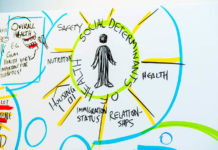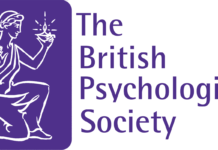Researchers Present Structural Competency Training Model for Psychiatrists
Researchers argue that a structural competency and social determinants of health approach must be made central to psychiatry training.
Mediterranean Diet Improves Mental Health, Study Finds
A diet rich in fruits, vegetables, whole grains, nuts, and fish has repeatedly been found to improve mental health.
Researchers Push for Transparency of Mental Health Outcome Data
A new analysis of UK mental health data suggests the way organizations deliver mental health services can alter patient outcomes.
Critical Influence of Nutrition on Psychosocial Wellbeing in Childhood
The bidirectional relationship between diet and nutrition and social, emotional, and educational factors among European youth.
Researchers Call for Structural Competency in Psychiatry
Structural competency in psychiatry emphasizes the social factors shaping patient presentations and encourages physician advocacy.
Intergenerational Impact of Adverse Childhood Experiences
The daughters of children evacuated from Finland during World War II show an increased number of psychiatric hospitalizations.
AVATAR Therapy Shows Some Positive Outcomes, Now What?
In a commentary piece, Ben Alderson-Day and Nev Jones discuss the AVATAR therapy research for psychosis and propose further questions.
Screen Time Linked to Increased Depressive Symptoms Among Teens
New study examines how increased screen time and social media may be contributing to depressive symptoms and suicide risk in teens
How Do We Prevent Loneliness?
Loneliness has been linked to negative health outcomes, but there are no interventions clearly proven to ‘fix’ the problem.
New Traction for Art Therapy as a Treatment for Depression
New study investigates the acceptability of a phenomenologically informed, manual-based art therapy for clients diagnosed with moderate to severe depression.
Agency and Activism as Protective Factors for Children in the Gaza Strip
Researchers recommend a ‘politically-informed focus', including activism, when assessing children and designing interventions in areas of chronic political violence.
Treatment of Insomnia Reduces Paranoia and Hallucinations
Treating insomnia using online cognitive-behavioral therapy appears to improve a variety of mental health concerns.
The Power of Placebo is Strengthened by Having a Warm and Competent Practitioner
The effect of individual expectations on treatment outcomes is found to be influenced by physician attributes.
Psychologists Push For New Approaches to Psychosis: Part 2
The authors of the report expand upon the traumatic and sociopolitical factors underlying presentations of psychosis and “schizophrenia.”
Psychologists Push For New Approaches to Psychosis: Part 1
Psychologists and people with experience of psychotic symptoms publish a report on new ways of understanding psychosis.
JAMA Article Challenges CBT as Gold Standard for Psychotherapy
A review of CBT research findings raises questions about its status as the “evidence-based” psychotherapy of choice.
Self-Compassion Course Supports College Students to Support Themselves
New research on a brief self-compassion focused course aimed at the college students.
Researchers Identify 27 Categories of Emotion
A new study finds that emotions may be represented by 27 categories, with each category relating to others in a more complex and continuous fashion than previously understood.
Study Investigates Long-Term Effects of Social and Emotional Learning Programs
Social and Emotional Learning (SEL) programs have gained popularity in U.S. schools in recent years. A new study examines the nature and longevity of their impact on students.
First Systematic Review of Leading School-Based Mental Health Programs
Results reflect moderate to strong evidence in support of the non-pharmacological school-based interventions reviewed in the study.
More to Happiness Than Feeling Good, Study Finds
Cross-cultural data suggest that happiness involves feeling the emotions one deems as right, in accordance with personal and cultural values.
Social Prescribing May Improve Self-Esteem and Mental Well-Being
Systematic review suggests social prescribing benefits individuals with mental and physical health issues, but more program evaluations are needed.
New Collaborative and Feedback-Informed Family Therapy Approach
Attempts to bridge the gap between research and practice result in a family therapy approach which employs clients as co-researchers.
Arts Participation May Improve Mental Well-Being and Social Inclusion
Introductory arts courses at Open Arts Essex show improvements in mental well-being and social inclusion for individuals with mental health challenges.
Brief Trauma-Focused Psychotherapies Effective for Children with PTSD
Eye Movement Desensitization and Reprocessing Therapy and Cognitive Behavioral Writing Therapy both reduce PTSD symptoms in children who experienced a single traumatic event.

































